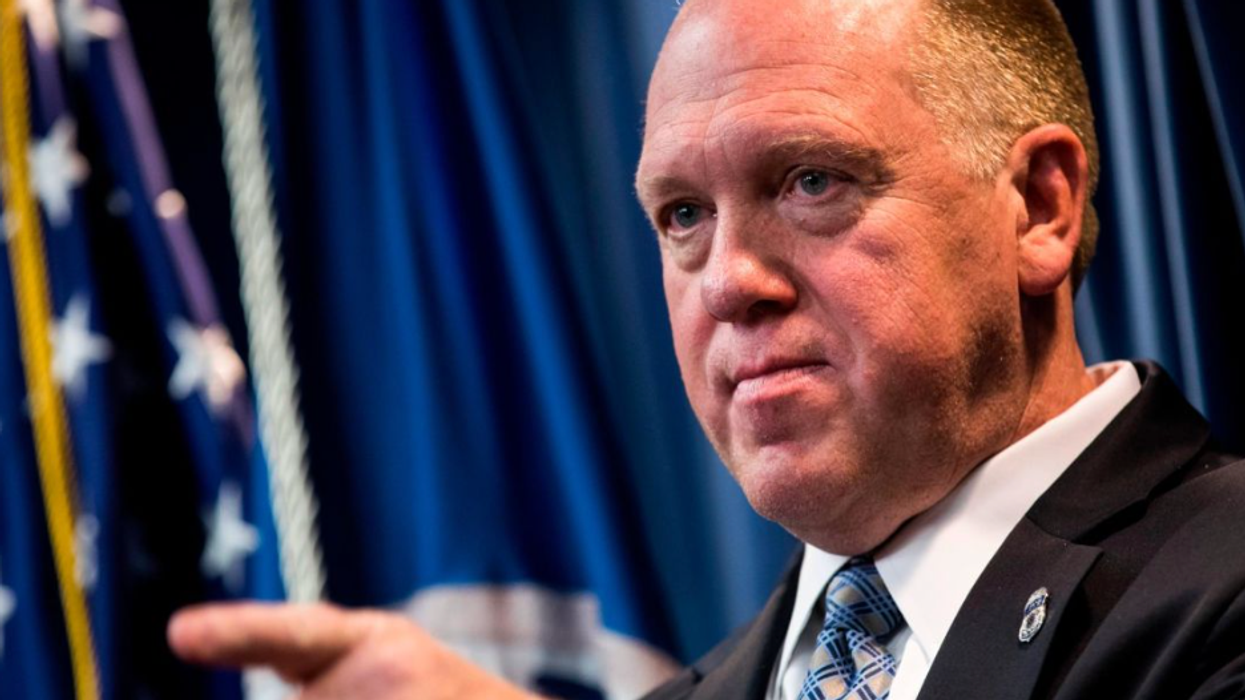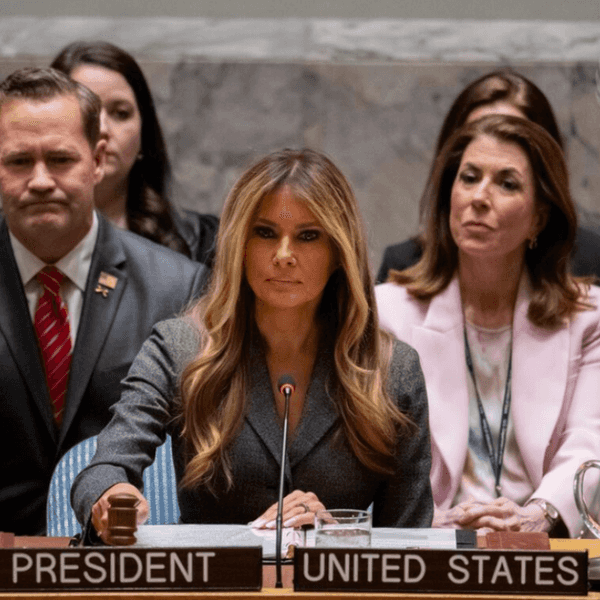
Confronted with reports from multiple outlets that Trump’s border czar Tom Homan was captured on tape by FBI undercover agents accepting a $50,000 payment in a CAVA bag in return for helping secure lucrative security contracts, the White House issued a categorical and indignant denial:
“Mr. Homan never took the $50,000 that you’re referring to,” said spokesperson Katherine Leavitt. “This was another example of the weaponization of the Biden Department of Justice against one of President Trump’s strongest and most vocal supporters.”
Yet within weeks of Trump’s return to office, the investigation was quietly shut down. What should have been a slow, painstaking inquiry — with prosecutors tracing the cash, exploring charges, consulting DOJ’s Office of Legal Counsel, potentially convening a Grand Jury, and more — instead vanished in a flash.
The timing strongly suggests political intervention, not legal analysis, killed the case.
It wasn’t so long ago that a White House categorical denial — putting the credibility of the administration on the line — would at least give reporters pause. But the Trump era has taught us that such denials usually mean the opposite: that the damaging evidence exists, and it’s only a matter of time before it surfaces.
Of course there’s a picture of Trump in Epstein’s birthday book; of course Comey’s account of Trump’s efforts to get him to promise loyalty was accurate; of course he paid off Stormy Daniels, as the canceled checks showed; of course he lied when he said “I returned everything” about Mar-a-Lago documents; of course he met E. Jean Carroll, as a photo showed; of course his claim that he couldn’t release his taxes was bogus.
I could go on, starting literally with day one of his first presidency, and the flagrant lies about the crowds. But the main point is this: if multiple outlets say there’s an audiotape showing Homan took $50,000 in a CAVA bag, and the White House denies it categorically, you should run straight to a betting parlor and put it all down on the White House lying.
And if that sounds funny, it’s a dark humor, because it’s repugnant that we live in an era when the administration not only has lost the benefit of the doubt, but has gained a presumption of lying.
But back to Homan. If it transpires that all the news reports are wrong and Leavitt is right, and this is all fiction, Homan should walk.
It’s not just the news reports — some backed by people who say they’ve heard the incriminating tape — that seem to catch the swaggering Homan red-handed. Homan himself has fueled the suspicion.
Homan, remember, wasn’t even the subject of the criminal investigation. FBI undercover agents investigating another person came across him serendipitously, and the $50,000 CAVA bag transaction followed.
Again, $50,000 in a CAVA bag. That’s some kind of tawdry and thuggish crime. Much more Tony Soprano than Selina Kyle. (Even better: Tony “Bagels” Caputo, the famous bagman for the Genovese crime family.)
Homan himself went on Fox News to respond. Laura Ingraham teed up the question, asking if he wanted to address the accusation that he took $50,000 in a bag. His answer, in characteristic swaggering tone:
“I never did anything illegal. I never committed any crime. I’m gratified DOJ shut this down.”
And he added, in a page directly out of the Trump/Patel/Kavanaugh playbook, a measure of chest-thumping moral indignation, saying the stories were just “hit piece after hit piece.”
But of course what he didn’t say was a lot louder than what he did — namely, that he never took the $50k in the bag.
“I never committed any crime” calls to mind Bill Clinton’s too-cute-by-half line: “I never broke the laws of my country,” which everyone understood as a backhanded admission he had used drugs in England.
So what is going on here? What exactly is Homan’s legalistic denial meant to accomplish — and more importantly, what was DOJ’s actual basis for shutting down the case? Once they give up the ghost on denying the tape’s existence, how will the DOJ try to spin its way out of trouble and keep Homan safe as well? Probably by invoking the Supreme Court and suggesting it was the prospect that the Court would reject the prosecution that triggered the case’s burial.
But that theory doesn’t jibe with the facts.
Here is what I feel confident is the crux of what’s happening.
Of course there’s a tape that has Homan taking the money.
But the Supreme Court has made a project of narrowing white-collar public corruption laws, including the one for bribery, and has thrown out multiple convictions in recent years. A careful prosecutor certainly would have to consider that litigation risk.
More precisely, the bribery statute requires that the bribe-taker be either in government or someone who has been “selected to be a public official.” So Homan would have that argument, and a track record of the Supreme Court’s grudging construction of federal public corruption laws to point to.
But here is the most important point: it seems very unlikely that the Homan investigation was shut down for this reason.
The wheels of justice grind slowly, and that includes the DOJ. Even the mere shutting down of the case took six months, from when Emil Bove, current Third Circuit judge and former DOJ enforcer, expressed displeasure at the charges until Kash Patel shut them down recently.
None of that happened. Instead, Bove — freshly promoted after helping gut DOJ’s Public Integrity Section — intervened, and the case was summarily buried. The speed of the closure all but proves the decision was driven by politics, not law.
Any determination of litigation risk based on the “selected to be a public official” language would take many months and would go through the Office of Legal Counsel.
More important, the near-certain response by a professional Department of Justice — the DOJ we had before January — would be to look hard at possible other charges against a public official who took $50,000 in the CAVA bag. There are many candidates, starting in fact with the money. We don’t know where the money is, but if Homan left the meeting with it, there may well be a question of money laundering, which would require extensive additional factual and forensic investigation.
Then there could be an honest-services fraud theory, or possible tax crimes, or false statements to investigators, or conspiracy that extended to when Homan was in office.
There could be professional consequences, like losing his job.
The point is: with this kind of conduct by that level of public official, the Department of Justice is not in the habit of throwing in the towel early.
Word to the wise: if someone offers you $50,000 in a bag, don’t take it on the assumption that the Supreme Court’s recondite white-collar doctrine will keep you out of trouble.
Texas law likewise prohibits bribery and official corruption. On paper, the state could prosecute Homan regardless of federal timidity. But in practice, the case would land on the desk of Attorney General Ken Paxton — himself a beneficiary of partisan indulgence, fresh from surviving impeachment and now running for Senate. Count on Paxton to protect a Trump ally, not pursue him. The statutes may be there; the will is not.
The Tape and the Truth
Democrats in Congress are pressing to obtain the recording. History suggests it will come out sooner or later. When it does, it will be another embarrassment for the Trump team, akin to the “birthday drawing” for Jeffrey Epstein that Trump swore was a fake, a line he holds to even after the drawing was produced. As always, shame is not a factor in his brazen lies.
These days, Trump’s critics and former Department of Justice prosecutors often decry a two-tiered justice system. But in fact it’s three-tiered: ordinary Americans face prosecution for every garden-variety fraud and cash-structuring violation; Trump’s enemies get targeted relentlessly, evidence be damned; and Trump’s friends — like Tom Homan — walk free even when caught on tape with a bag of cash. (And we could add a fourth tier, based on Homan’s own zealous work: immigration violators get tracked down by masked federal agents in military garb.)
The Homan scandal begins with a lie — Leavitt’s categorical denial — and likely is moving to a grand deception: that the Department closed the case for legitimate rather than nakedly political reasons. And it’s the public, and the increasingly illusory ideal of justice without fear or favor, that are left holding the bag.
Harry Litman is a former United States Attorney and the executive producer and host of the Talking Feds podcast. He has taught law at UCLA, Berkeley, and Georgetown and served as a deputy assistant attorney general in the Clinton Administration. Please consider subscribing to Talking Feds on Substack.
Reprinted with permission from Substack.
Reprinted with permission from Talking Feds.
- Shakedown Shack: Everyday Corruption In Trump's White House ›
- 'Release The Tapes': Lawmakers Demand Details On Homan Bribery Probe ›
- Blustering Homan Blurts Weak Response To Bribe Allegation On Fox News ›








